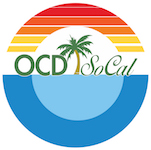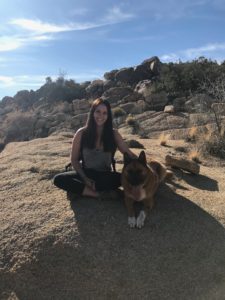OCD SoCal invites you to join us for our 2018 OCD Southern California Conference to be held on Saturday, March 24, 2018 from 10:30am-5:00pm at Mariner’s Church in Irvine, CA (Life Development Building, 2nd Floor, 5001 Newport Coast Drive, Irvine, CA 92603). This conference is an opportunity to learn more about obsessive compulsive disorder (OCD) and its treatment, provide support for individuals with OCD and their families, and gain practical knowledge about a variety of issues that may arise with OCD and related disorders.
CONFERENCE SCHEDULE AND EVENTS
*Click here for a printable version of the schedule and click here for parking directions/map
Registration, Continental Breakfast, and Exhibitors (10:30am-11:15am)
Please plan to arrive early for registration. A light continental breakfast will be provided. During this time, local treatment centers will be present with information about resources for OCD and related disorders.
Professional Networking Breakfast (10:30am-11:15am)
Local clinicians and researchers are invited to attend our professional networking breakfast prior to the conference. This will be an informal meeting for professionals to become acquainted and to allow for conversation regarding the needs and opportunities available in the Southern California OCD and related disorders community.
Keynote (11:15am-12:30pm)
The Crazy Game, by Clint and Joanie Malarchuk
We are honored to have the Malarchuks as our keynote speakers! Clint, a retired NHL goalie, and his wife Joanie presented a powerful keynote speech at the 2015 IOCDF conference. They both are Mental Health Advocates and speak professionally around the country on OCD, PTSD, depression and their own struggles with mental health. Clint’s memoir, The Crazy Game: How I Survived in the Crease and Beyond, was published in 2014. Clint was awarded with an Honorary Doctorate from Nipissing University this past June for his Advocacy and Charity work.
UNSTUCK: An OCD Kid’s Movie
For the younger members of the audience, we will be showing the short film, “UNSTUCK: An OCD Kid’s Movie” and several short videos of children and teens with OCD. The Youth Keynote will occur in parallel with the main Keynote address.
Lunch (12:30pm-1:30pm)
Lunch is included in the conference registration cost. There will be time and space during lunch to meet people in your local region as well as to discuss leadership opportunities with OCD SoCal.
Breakout Session (1:45pm-2:45pm and 3:00pm-4:00pm)
*all sessions are repeated so participants can select from the following topics (see detailed description of each session here):
What’s in your pillbox: Q & A on OCD Medication
Sean Sassano, MD
Training Family Members to become ERP Coaches: An Experiential Workshop
Gerald Tarlow, PhD & Jennifer O’Connor, PhD
OCD Recovery: We Conquered OCD and You Can Too!
Ethan Smith, Chris Trondsen, MFTT, and panel of speakers recovered from OCD
Leaning into Your Anxiety: A Guide for Clients in Understanding How to Effectively do Exposures
Naomi Zwecker, PhD, Ally Sequira, PhD, & Ken Goodman, LCSW
ERP for OCD Subtypes and Related Disorders
Rodney Boone, PhD, Martin Hsia, PsyD, Tselane Gardner, MFT, Curtis Hsia, PhD, Stephanie Davis, PhD, & Danielle Jackson-Grillo, MFT
Acceptance and Commitment Therapy, Mindfulness and ERP
Kimberley Quinlan, MFT, Kelley Franke, MA, & Matthew Codde, LCSW
Closing and Q&A (4:00-5:00pm)
OCD SoCal will be presenting an exciting wrap up event following the afternoon breakout sessions! Speakers from all sessions will summarize their talks and take audience questions.
REGISTRATION INFORMATION
Click here to complete online registration through our Event Brite page. Seating is limited, please register prior to event. Cost is $25 for adults 18+, $15 for teens 12-17, and free for children 11 and under. Continental breakfast and lunch will be included in the registration cost. Conference capacity is limited to 220 people so please register ASAP as we are we are likely to sell out based on the success of last year’s conference! Registration will remain open while seating/space is available.
OCD SoCal does not want cost to be a limiting factor for individuals who are interested in attending this event. Due to the generosity of donors, we are pleased to offer Lee Baer Memorial Scholarships to cover the cost of registration. We are also looking for volunteers to assist with the conference on the day of the event. Please email us at (info@ocdsocal.org) for more information about either the Lee Baer Memorial Scholarship and/or volunteer opportunities.
If you do not wish to pay by credit card via Event Brite: Please email us at info@ocdsocal.org to RSVP. Assuming space is still available, we will confirm your registration and ask you to send a check postmarked prior to the conference to the following address:
OCD SoCal
2514 Jamacha Road
Suite 502-35
El Cajon, CA 92019

